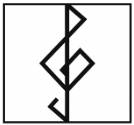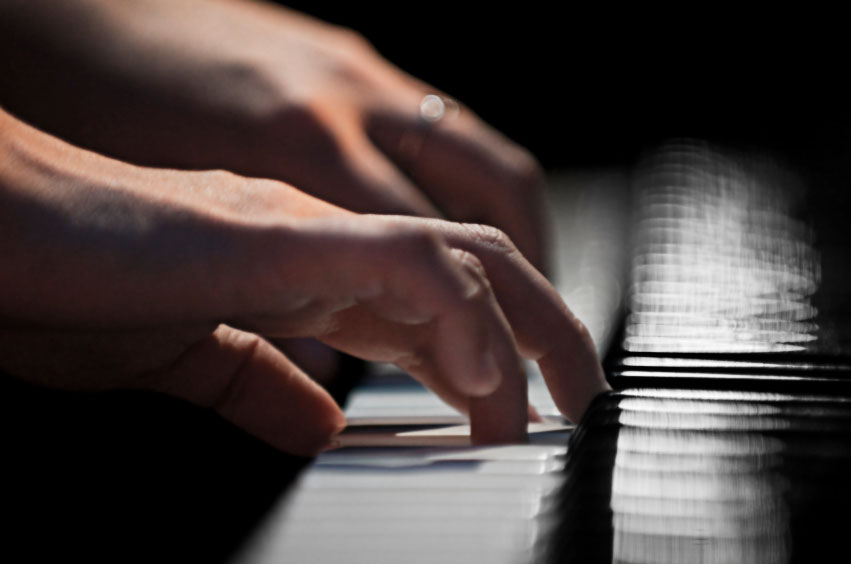Acoustic Piano Vs Digital Piano. Which should I buy?
By Kailan O’Dell, Sono School Of Music
This is a topic that has seen frequent debate, and this article will help you make an informed decision as to which type of piano you should buy when considering an acoustic or digital piano. Many purists believe that acoustic pianos are the only instrument you should be practicing on, and that anything else is a waste of time, effort, and money. However, these purists are ignoring the individual needs of different people, as there are many instances in which a digital piano would be a better option.
Which sounds better?
Firstly, let’s begin with the actual sound of the instrument. Quality acoustic pianos have a resonance, warmth, and space to them that simply cannot be recreated by any digital means. While there’s nothing quite like playing on a high quality, well maintained acoustic piano, a moderately priced digital piano does a fantastic job at emulating this sound. The advantage that a digital instrument does have over an acoustic is that they will often be able to reproduce more than just a piano sound. Digital pianos usually have many different sounds built in, such as violin sounds, organs, trumpets, or sometimes even full drum kits. For many people, however, these sounds would be somewhat of a gimmick. Ultimately, the sound of a well-tuned and maintained acoustic piano simply cannot be completely replicated by a digital instrument, but a high-quality digital piano can come quite close.
Which feels better?
Once again, it is hard to replicate the feel of a quality acoustic piano. When the piano’s keys are hit, they trigger a felt hammer in the body of the piano to hit a string, thus making the sound. The weight and feel behind each of the keys is very unique to an acoustic piano, but digital instruments are becoming better and better at modelling this feel. When searching for a digital piano, it is recommended that you find one with 88 keys (the same number as an acoustic piano), and a “fully weighted action”. Many cheap keyboards have thin, light, plastic keys that are easy to press and will not sound as good. Learning on a cheap, unweighted keyboard will have a detrimental effect to your playing once the switch is made to heavier, weighted keys on a higher-quality digital piano, or acoustic piano.
Having said all this, the action on some cheap acoustic pianos is terrible, even if new. Beware also the plethora of old pianos floating around on gumtree and the classifieds with wonky old keyboards. Most of these instruments are now merely a piece of furniture. Ex school and conservatorium pianos are also best avoided. There is a reason they turn them over regularly and have those sales. Those pianos have been played to death and the cost of refurbishment is prohibitive.
Do I have to maintain them?
In terms of maintenance a digital piano easily wins out over an acoustic piano. Acoustic pianos are made from natural materials such as wood, felt, cork and leather. These materials degrade over time, and wear with use. The strings in an acoustic piano will go out of tune over time. It is recommended that an acoustic piano is tuned once every 6 months. Sometimes a climatic change may result in a piano needing tuning. Pianos should only be tuned by professional piano tuners, and it is costly to hire a piano tuner. The keyboard will also need “regulating” from time to time, and “voicing” the piano is necessary when felt hammers harden and develop grooves past a certain point. You could easily budget $1000-$1500 per year for proper maintenance.
Additionally, an acoustic piano ideally is kept in a climate-controlled environment. Humidity is a real issue, as is temperature change. In fact, if you live in a very dry or a very humid climate, this is a must. A piano fares best in 35-45% humidity, but up to 55% is acceptable if it is constant.
Those thinking of purchasing an acoustic piano must also consider the cost of hiring a piano removalist to move such a large instrument.
The only maintenance required for a digital piano is the occasional wipe down, and switching it off when not being used!
Which is cheaper?
Looking at the two instruments in terms of price, the acoustic piano requires a greater initial investment and carries significant ongoing expenses. Upright acoustic pianos range anywhere from the low thousands to well past the $20,000 mark. Digitals start at around $1000, and $2000 will get you a good one with good keyboard action and sounds. A cheap, Asian manufactured acoustic piano would most likely lose out to a digital piano of the same price.
Can I still do AMEB exams with a digital piano?
According to the Australian Music Examinations Board, digital pianos must meet a few specifications. They need to have 88 notes, they must have fully weighted and touch sensitive keys, and they must have fixed pedals functioning the same as an acoustic piano. Digital pianos may only be used in examinations up to Grade 4. Beyond Grade 4, acoustic pianos must be used during the examination. However, there is no reason that you could not practice on a digital piano at home. Yes, ideally you would have a quality, well-maintained acoustic piano to prepare for exams, but you don’t NEED one. Presumably your lessons give you the opportunity to play on an acoustic piano (at Sono, we have a top of the range Japanese Kawai), and perhaps you could arrange to hire a practice room at your school to play on an acoustic piano as your exam approaches.
So which is best?
If you are willing to spend more money and regularly maintain the instrument, a quality acoustic piano cannot be beaten on sound and feel. On the other hand, digital pianos remain a great instrument for people starting out, those on a budget, or those who simply want the convenience of not having to worry about maintaining the instrument. It must be stressed that a cheap, low quality acoustic piano will most likely become a headache to maintain, and may not even play as nicely as a digital piano of the same price.
Another point to consider when deciding between the two is your current living situation. Acoustic pianos can be bothersome to neighbours in suburban areas, whilst digital pianos have the ever-useful advantage of silent play through use of headphones. Using headphones allows you to play at any time that suits you!
So if you can afford to buy it, move it, maintain it, and have a living area to support it, the recommended option would be a high-quality European or Japanese made acoustic piano. Acoustic pianos simply cannot be beaten in sound and feel, but only if they’re properly maintained and cared for. However, digital pianos can be a very good option, more so than many people believe.
Ultimately, each instrument has its pros and cons, so chose the one that fits your needs best.

